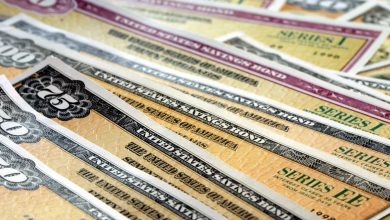Stock Market Crashes Can Change Your Life For The Better

Starting on July 16, 2024, we had a mini-stock market crash with the S&P 500 declining from 5,667 to 5,186 by August 5, 2024 (-8.5%). The NASDAQ saw a larger drop, falling from a high of 18,647 on July 10, 2024, to 16,200 on August 5, 2024 (-13%). And the bloodletting might not be done yet!
Most investors anticipated a correction due to elevated valuations and significant outperformance in big tech stocks. However, when a correction occurs, it always feels a bit jolting. The bears come out for their victory lap, and the media tends to amplify the fear to generate more views.
The reality is, 5%+ pullbacks occur about three times a year on average. 10%+ pullbacks occur once a year on average. 15%+ corrections occur every two years on average. Finally, 20%+ declines, which define a bear market, occur every three to four years on average.
In other words, stocks go down all the time! So this latest July-August 2024 stock market crash isn’t really a crash; it’s just par for the course. When I think of a stock market crash, I expect at least a 20% drawdown.

Nobody, except short sellers and permabears, likes stock market crashes. Losses in the stock market can make you feel unmotivated, sad, stupid, and even depressed. “Oh, why didn’t I take some profits?!” you might start thinking to yourself. Or you might feel cursed, thinking, “Of course, as soon as I invest, stocks start going down. How unlucky.”
I feel the negativity and tell myself these things every time the stock market crashes. After feeling unsettled for a day or two, I accept the situation and invariably move on, returning to my normal positive disposition.
It’s worth sitting with your negative emotions for a while because these negative emotions will help change your life for the better. If you’re always feeling great, like a great-looking person who fails to improve their personality because everyone is so nice to them, then you might eventually find yourself royally screwed.
Here are some positives from a stock market crash.
1) You Get to Catch Up to Richer People
When the stock market crashes, the people with the most investments also lose the most. People like Warren Buffett will lose billions in a day. Therefore, on those days, you are relatively wealthier because you close the wealth gap by billions as well.
It’s generally not good to find joy in the suffering of others. But psychologically, understanding you are relatively richer because you’ve lost way less than those richer than yourself can help you find peace and move forward. The angriest people I encounter tend to also be the most envious.
I remember when stocks plummeted by 50% in 2008, my Director told me, “Just feel lucky you don’t have as much invested as me. Not only am I losing way more money in the stock market, but the absolute dollar amount cut from my year-end bonus will be multiples greater than yours!”
“Gee, thanks,” I thought to myself at the time. He was basically telling me, “Be happy being poorer than me!” But in retrospect, he was right. The poorer you are during a stock market crash, the better.

2) You Get to Fine-Tune Your True Risk Tolerance
You never know what your true risk tolerance is until you lose a significant amount of money during a stock market crash. You can be a social media investment pundit publicly tweeting how you will always buy the dip and invest for the long run with your $50,000, $100,000, $300,000, or even $500,000 invested. But unless you have significantly more than $500,000 invested, you might be fooling yourself into thinking you have a greater risk tolerance than you truly have.
It “helps” to lose more in the stock market than you would earn working a year at your day job. Once you experience this, that is when you will best know your true risk tolerance. And once you know your true risk tolerance, you can then adjust your asset allocation accordingly so you never feel as bad again.
I’ve developed a novel way to assess your risk tolerance called the Samurai Equity Exposure Rule (SEER). I look at the historical data of stock market crashes and translate your portfolio’s potential financial loss into the amount of time you need to work to make up for your losses. The greater your Risk Tolerance Multiple (Months), the higher your risk tolerance and vice versa.
It’s not a perfect way to assess risk tolerance, given stocks usually bounce back over time. But SEER provides a logical way to assess how much of your money you’re willing to lose in hopes of gains as you age.

3) You Learn to Diversify into Other Assets that Can Bring You Greater Wealth
When you lose a lot of money in stocks, your natural instinct is to look for alternative investments that might perform better. If you discover, after a stock market crash, that you feel extremely uncomfortable with the losses, your aim will be to diversify your investments to prevent another similar magnitude of loss in the future.
Bonds are the classic defensive asset to help protect against stock market losses. Until 2022, when the Fed started hiking rates the fastest and most aggressively in history, bonds would go up when stocks went down. However, owning bonds isn’t the best choice for people still in their rapid wealth accumulation phase.
In my experience, the best alternative asset to stocks is real estate, which is like a Bonds PLUS type of investment. Real estate can have greater upside than bonds while still providing defensive characteristics when stocks sell off.
As a tangible asset that provides utility and generates income, real estate is a less volatile asset class than stocks. You don’t just wake up one day and find 20%+ of its value gone like you do with individual stocks all the time.
The Dotcom Bubble Encouraged Me to Invest in Real Estate
Given I worked in equities during my career in banking, I was highly leveraged to the stock market because my compensation and job security were at stake.
Soon after joining the industry in 1999, the first Dotcom crash began in 2000. I saw fortunes lost faster than they were made. As a result, after maxing out my 401(k) and selling a lucky 50-bagger, I tried to invest in assets other than stocks with my after-tax money.
The 2000 NASDAQ crash and lost decade in the S&P 500 forced me to invest a little bit in bonds and a lot in real estate. Although real estate historically appreciates at about half the rate of stocks, due to leverage and my confidence to buy a lot more real estate, real estate has generated far more wealth for me than stocks.
Easier to Make More Money in Real Estate
Most people find it easier to buy a $500,000 home with $400,000 in debt than to buy $500,000 in the S&P 500 with no debt, let alone with debt.
The simple reason is that a home provides utility. We all need a place to live. When the stock market is crashing, at least you have a home to shelter your family and create nice memories.
The second main reason people find it easier to buy more real estate than stocks is that real estate can generate income with a minimal hit to the asset. Knowing you can always rent out a room or your entire house if things get bad gives real estate investors more confidence.
Finally, it’s easier for some people to hold onto their real estate investments versus their stock investments. Because it’s free and easy to sell stocks, stock investors are more likely to sell during a stock market crash. With daily tickers showing how much you’re losing in stocks, it’s easy to freak out.
But when the real estate market is falling, you might not be able to sell due to high fees and a less liquid market. Ironically, the greater difficulty in selling real estate may end up making you a lot more money in the long run.
Due to these three reasons, real estate investors can easily make a lot more money than stock investors.
4) You Will Optimize Your Life for the Better
Given time is your most precious asset, a stock market crash may lead you to reconsider your career. It hurts when you’re working hard at a job and seeing your net worth go in reverse.
Unless you’re just greedy for money, the reason you invest in stocks is to help pay for a better life. Nobody holds stock forever. Given stocks provide zero utility, the only way to capitalize on stocks is by selling occasionally and using the proceeds to buy things or experiences that improve your life.
Losing money in stocks will remind you how empty it is to invest in stocks if you never sell. As a result, this emptiness will force you to examine whether you’re living your ideal life or not.

The Global Financial Crisis Encouraged Me to Leave Finance
Losing a lot of money in the stock market between 2008-2009 forced me to revisit my career. I also experienced the trauma of leaving the Oberoi Hotel in Mumbai a couple of weeks before India’s worst terrorist attack, where 175 people were killed and over 300 were injured. Images of people strewn all over the floor of the lobby restaurant where I had eaten every morning was disturbing.
Was death catching up to me? It sure seemed like it, as I was at the top of the World Trade Center in early 2001 for a GS Latin America conference. I didn’t want to die knowing I spent my career just focused on making money.
Ultimately, I no longer enjoyed working in finance. When you’re sitting on the trading floor at a major investment bank for 10 hours a day, you cannot escape the negative impact of a stock market collapse. You’re forced to not only endure the gut-wrenching losses, but also be a positive voice for clients, who are also hemorrhaging a ton of money.
A Catalyst To Create Something New
I started to think surely there was something better I could be doing with my life. And so in July 2009, I decided to start Financial Samurai as a healthy way to make sense of all the economic devastation.
Without a doubt, Financial Samurai has made my life better. And based on the daily emails and comments I get from readers, it has made many other people’s lives better too. To help yourself and help others beyond matters of just accumulating more wealth is a great combination.
If there hadn’t been a global financial crisis, I’d likely still be working my soul-sucking finance job today. I would probably be 20 pounds heavier with 50% less hair. And, I’m sure my chronic pain, which all disappeared within six months after I left my job, would be worse too.
5) You’ll Get to Invest More for Your Children And Make Their Lives Better
If you have children, a stock market crash is incredible for them. The younger your children, the better, given their investments have more time to compound.
It’s hard enough to save enough to pay for college. With a stock market crash, you can contribute the maximum gift tax limit or more if you wish, into their 529 plan. You can also help fund custodial brokerage accounts with more investments. Finally, once they start having legitimate earned income, they can invest more in their Roth IRAs, which will grow large enough to give them a head start as adults.
Young children have no ability to invest for themselves. Therefore, investing for them during a correction or bear market is one of the greatest gifts of love. Your investments today will help them get a better education, see the world, buy a car, own a home, find love, start a family, and feel happier overall.
As a parent, no longer are we and our partners the most important people; our children are. So every stock market crash gives us an opportunity to set our children up for a better future.
Historically, if you invest after every 5%+ pullback in the S&P 500, you will see a positive 11% median and average return 12 months later, 97% of the time. I’ll take those odds any day, which is why I’m always buying pullbacks of this size.

6) Your Discipline Will Improve as You Wait Out the Turmoil
Time in the stock market is a key factor in building wealth. Those without discipline will either not invest, not invest enough, sell at inopportune times, or try to day trade for a quick profit—all of which are suboptimal moves.
When you experience a stock market crash, it is your opportunity to practice discipline and perseverance. Think the classic marshmallow test, but for adults. Try your best to dollar-cost average into any correction, even if the situation feels dire. Over a 10-year period, you have a greater than 95% chance of making money. And after a 20-year period, historically, you have never lost money.
The more stock market crashes you experience, the greater your discipline becomes, which will ultimately make you a lot more money in the long run. You will find that your tolerance for losing money in stocks increases since you’ve been through losses many times before.

7) You’ll be Encouraged To Spend Money and Decumulate
Given that stock market returns are considered “funny money,” every time you lose money in the stock market, you will inevitably think about what your losses could have bought had you sold. The more you think about what you could have bought, the more you will be willing to decumulate wealth to enjoy life now.
It is disappointing to spend a lifetime saving and investing without ever spending your gains on things that improve the quality of your life. Most people don’t start thinking about decumulation until after the traditional retirement age of 65. For some, sadly, that might be too late, given they might not live that long. What a tragedy it would be to die with so much and never reward yourself for the financial sacrifices you made as a younger person.
In this latest stock market crash, I lost about four times what I made in my part-time consulting job for four months. Yowza! Although it saddens me that I lost so much money, at least I’m now more willing to spend money to enjoy life. After all, it’s better to spend money on something than just have the stock market wipe away even more wealth at my age.

Stock Market Crashes Can Be A Gift
After reading this post, I hope you feel better about losing lots of money in the stock market. Although it stinks temporarily, with enough time, your stock investments will likely recover.
The question is whether you will use a stock market crash to make changes to improve your life. Maybe everything is already hunky dory and no changes need to be made. But I recommend not letting a difficult financial moment go to waste.
Personally, I’m buying the S&P 500 and select tech stocks on the dips. My goal is to rebuild my equity exposure to 25% of my net worth from the current 18%, following the purchase of a new house in 2023. I’m thankful this latest pullback has given me a chance to catch up.
Here’s to an eventual recovery in the stock market!
Reader Questions and Suggestions
Has a stock market crash motivated you to change the way you invest, change how you spend your time, or made you a better person? If so, how?
If you want to diversify into real estate but don’t want to invest in physical property, check out Fundrise. Fundrise manages over $3.3 billion for over 500,000 investors, primarily in the Sunbelt region where valuations are lower and yields tend to be higher. You can easily dollar-cost average into Fundrise due to its low minimum investment of $10.
I’ve personally invested over $275,000 in Fundrise to diversify away from my expensive San Francisco real estate investments and earn more passive income. The older and wealthier you get, the less you’ll like experience volatility. Fundrise is a long-time sponsor of Financial Samurai, as our views on real estate are aligned.




